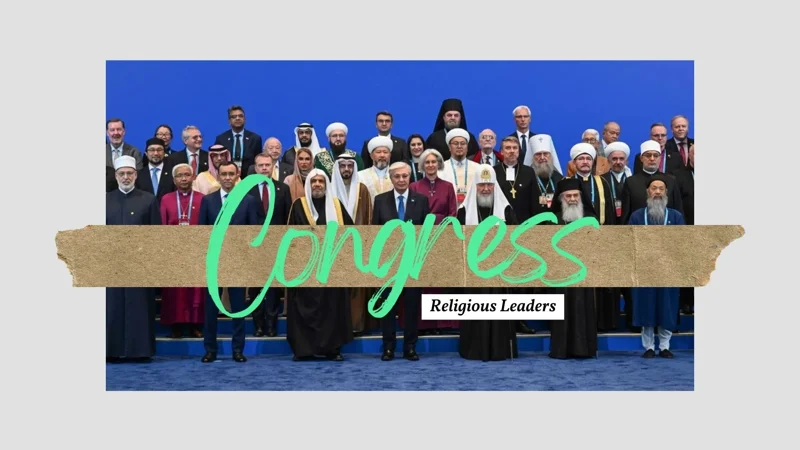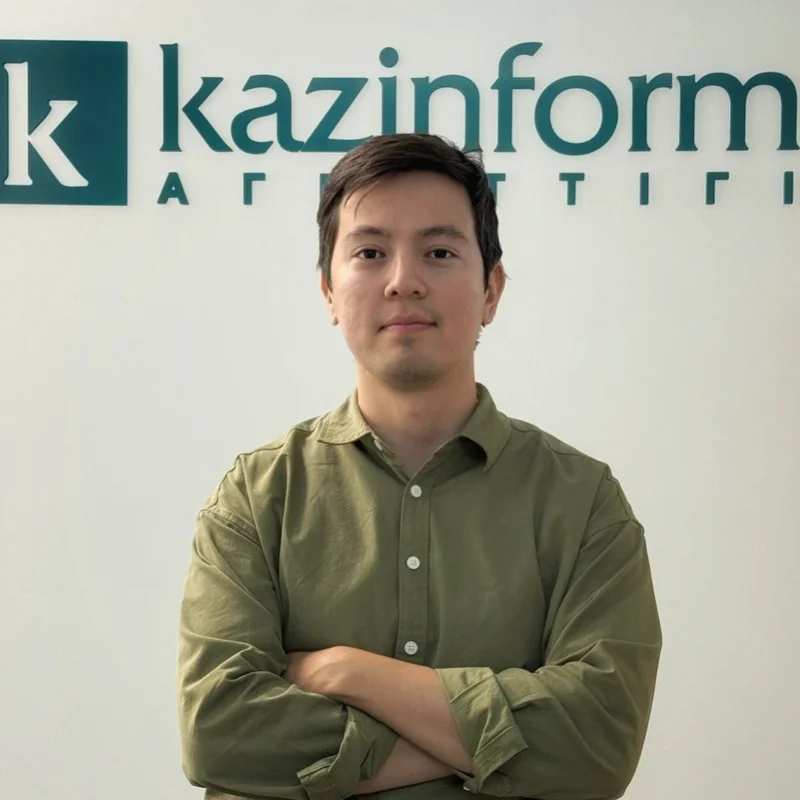Highlights from leaders’ speeches at Astana Congress of Leaders of World and Traditional Religions
At the 8th Congress of Leaders of World and Traditional Religions in Astana, prominent religious and international figures shared their vision of dialogue, peace, and cooperation. Read in our report the key messages from the Congress, Kazinform News Agency correspondent reports.

Head of State Kassym-Jomart Tokayev opened the work of the 8th Congress of Leaders of World and Traditional Religions in Astana.
“Today in Astana, the most authoritative spiritual leaders of the world have gathered. For us this is a great honor and pride. Today various situations in the world are becoming more acute, which leads to an increase in the number of conflicts. A changeable period is never easy for anyone. Unfortunately, the character of wars is becoming increasingly serious. However, the lessons of the past should encourage us toward constructive and open dialogue. In this sense, the significance of today’s congress is truly unique,” noted the President.
Secretary General of the Muslim World League Sheikh Mohammad bin Abdulkarim Al-Issa urged stronger interfaith cooperation and joint action to safeguard peace and human dignity.
“In order to gain peace throughout the world, we need to recognize that the conflict that is taking place today leads to nothing but evil. Human diversity has to be the source of our cooperation and exchange, not the reason for conflicts between nations,” he said.
He underscored the responsibility of religious leaders.
“They are not merely the keepers of the sacred texts, but they are the witnesses of the truth, and they should try to transform efforts into actions. If values are not implemented into actions, they cannot be called values,” he said.
Li Guangfu, President of the Chinese Taoist Association, told the Congress that Taoist teachings promote peace, harmony, and ecological balance. He noted the community’s long-standing participation since 2003 and the 2023 launch of the World Taoist Federation, which now brings together 52 organizations from 20 countries. Turning to current global challenges, he said:
“The world is facing multiple crises. Geopolitical tension is leading to conflict, climate change threatens survival, and technological revolutions create new moral and ethical dilemmas. In the face of this shared predicament, no country or religion can remain unaffected. Only by breaking down barriers through dialogue, resolving differences through understanding, and gathering through cooperation can humanity discover a sustainable path of coexistence.”
Osano Masashi, chief priest and representative of Shinto, addressed the Congress, stressing the spiritual and cultural importance of harmony, gratitude, and respect for nature in Shinto tradition.
“In Shinto, we honor many diverse entities called kami, and our tradition is said to date back to the first inhabitants of the Japanese islands.”
He explained that Shinto developed out of gratitude toward nature and the pursuit of harmony within communities. Since ancient times, the Japanese people have lived under the constant impact of natural disasters such as typhoons and torrential rains. From this experience grew a fearful reverence for nature and the veneration of kami of wind, rain, and lightning.
Masashi also drew attention to the challenges of the modern era. He noted that global climate change directly affects even Mount Fuji, where he serves as chief priest, which creates a profound sense of crisis.
“The permafrost is melting and the treeline is climbing, as I see the beauty of this mountain, honored by the Japanese as kami, changing under the influence of global climate change.”
He also touched on the impact of technology, warning that the rapid advance of artificial intelligence may erode traditional values and lead people to treat AI as a higher power.
British Anglican bishop Jo Bailey Wells told the Congress that interfaith leadership must move beyond declarations and dogma to foster real dialogue and understanding.
“Those leaders work not through declaration but through invitation, not through dogma, but through dialogue. At tough moments it means standing in the tension to create space for something deeper to emerge,” she said.
Phallop Thaiarry, President of the World Fellowship of Buddhists (WFB), addressed the Congress, noting that the organization founded in 1950 in Sri Lanka and now headquartered in Thailand unites more than 220 regional centers in over 60 countries. He stressed that its mission is to promote understanding, compassion, and cooperation not only among Buddhists but among all faiths.
“I believe that peace in the world begins with peace in the mind… As the Buddha said, all things are perceived by the mind, lived by the mind, and made by the mind,” he said.
He emphasized that no religion or nation can achieve peace alone. “It requires all leaders, all faiths, all nations to work hand in hand,” Thaiarry concluded.
High Representative for the United Nations Alliance of Civilizations Miguel Ángel Moratinos, who was recently appointed as the UN Special Envoy on Combating Islamophobia, addressed the 8th Congress of Leaders of World and Traditional Religions, stressing the moral and spiritual role of dialogue in today’s world.
Moratinos spoke about what he called “individual diplomacy, a diplomacy of conscience grounded in ethical values,” which, he noted, can help prevent conflicts when traditional state diplomacy falters.
He underlined the significance of the Astana Congress.
“The Congress of Leaders of World and Traditional Religions has, since its inception, been a beacon of hope, a moral compass for humanity at a time when the world seems adrift,” Moratinos said.
United Nations Secretary-General António Guterres in a video message expressed gratitude to Kazakhstan for hosting the Congress in Astana.
“We need to build bridges in our fractured world. That is exactly what we are doing. Religions and spiritual pillars are essential in forging common ground. Your teachings have guided millions across centuries, and today your voices can inspire hope,” Guterres said.
Earlier, Kazinform News Agency reported that Secretary General of the Muslim World League Sheikh Mohammad bin Abdulkarim Al-Issa urged stronger interfaith cooperation and joint action to safeguard peace and human dignity.
